
Menu
What happens when your child discovers something inappropriate online? Your reaction in that instant might be the most important parenting decision you make. Through a powerful personal story, we see how responding with gratitude for honesty and creating positive reinforcement fundamentally changes the parent-child dynamic around technology.
What happens when your child discovers something inappropriate online? Your reaction in that instant might be the most important parenting decision you make. Through a powerful personal story, we see how responding with gratitude for honesty and creating positive reinforcement fundamentally changes the parent-child dynamic around technology.
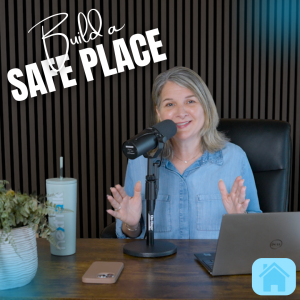
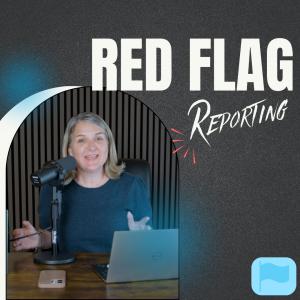
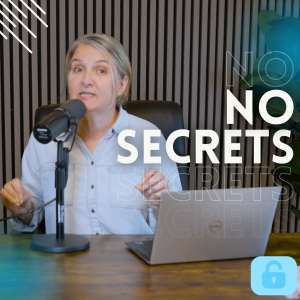
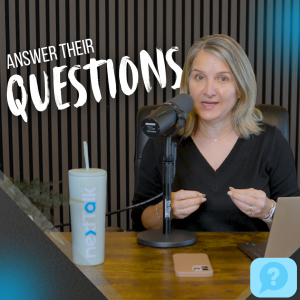
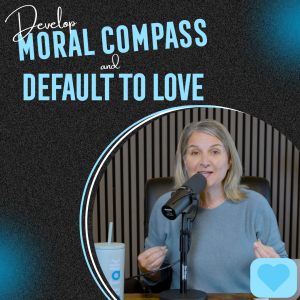
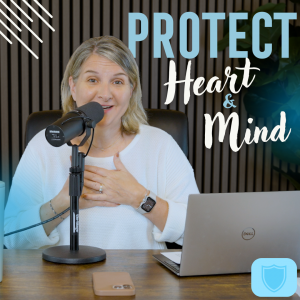
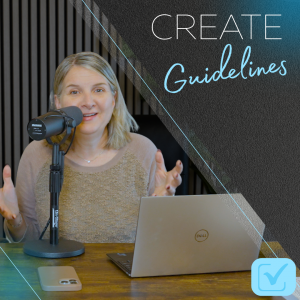
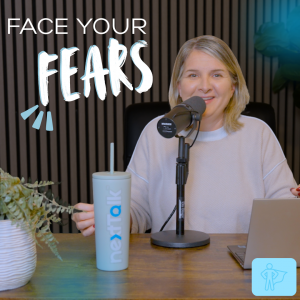
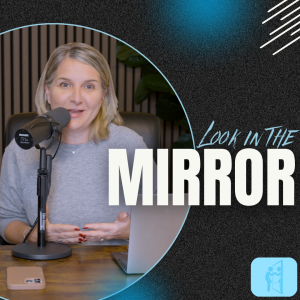

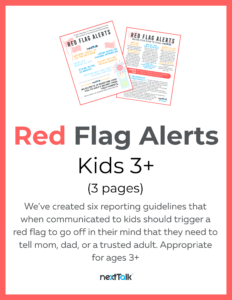
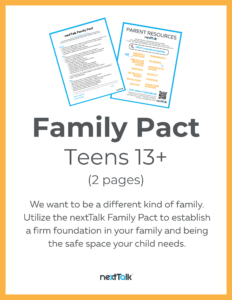
Transcription is done by an AI software. While technology is an incredible tool to automate this process, there will be misspellings and typos that might accompany it. Please keep that in mind as you work through it.
Speaker 1:
Welcome to the Next Talk podcast. We are a nonprofit passionate about keeping kids safe online. We’re learning together how to navigate tech culture and faith with our kids. Avoid crazy parent mode. Why is this important? I want to start with a little story when my daughter first earned Instagram and I say earned. You guys know I do not believe in a kid just turning a certain age and getting a phone or getting social media. It has to be based on their behavior. So you can say, be 14 and do this and this, but it can’t just be a birthday. It’s got to be more about their behavior.
Speaker 1:
So my child had earned her first social media platform and we were kind of learning, you know, what it was like to post and that sort of thing. And one day I was making dinner and she rounded the corner and she had her phone in her hand and her eyes were wide open and I knew in that moment it was going to be like, like important. And she said to me mom, mom, I’m scrolling Instagram and so and so posted beautiful pictures of a wedding. And that was back in the day when you used a lot of hashtags and it said hashtag wedding. And she said I clicked that hashtag because I wanted to see pretty dresses and what popped up was just porn, like naked people everywhere, guys. And so she’s telling me this and she’s showing me this.
Speaker 1:
Old Mandy would have literally looked at my child and said I tried to be cool, instamom, but we are done here, delete the app. That’s what old Mandy would have done, but new Mandy, being aware that creating a healthy relationship is what’s going to keep my kids safe online, right, the next talk way. Understanding that, new Mandy did not respond in any way like that. Instead, I said to my kid I am so proud of you, thank you so much for sharing that with me. You saw something online and it made you feel weird and you knew it wasn’t right and you told me and because you told me, you can get a new app today. Now she lit up. I mean, this was years ago, it was an experiment, like I didn’t know what I was doing. So I kind of had to reel back a minute and said, okay, you can have a new app, but I still have to approve it. I still have to make sure it’s safe for you. I didn’t realize at the time what I was doing. You know, I just was. I knew that I had to build a healthy relationship with my kids about what they were seeing online. But looking back all these years, you guys, that moment was one of the foundational moments of us becoming a Next Talk family. Because I want you to think about something. Had old Mandy responded the way I wanted to, okay, and I would have made her delete Instagram and we’re done here. The next time that she goes to a neighbor’s house or a friend’s house or she has shown something online, is she going to tell me no, because then I’m going to not let her hang out with that person, or I’m going to take away whatever, because that is what the setup is in my home. I’m creating. It feels right. It feels right because you’re protecting your kid, but what it’s actually doing is creating an environment where they’re going to lie to you because they don’t want to tell you, because then they lose whatever they want to play or whatever app they want to be involved in. New Mandy, on the other hand, new Mandy is creating positive reinforcement. You tell me you get more freedom, if I can trust you, you get more online access.
Speaker 1:
Right, and even that night I crawled in bed with her because you know, deuteronomy 6, 6 and 7 says talk when you’re going to bed. That’s one of the key times. And I remember scratching her back and I just asked her like are you okay after seeing all that? Like I saw those pictures, I reported it. I saw even more like are you okay? And we were able to have a conversation that night. And it was a long conversation. But I said to her honey, you know, when you see stuff like that, when you see pornography, it changes the way you see people. And so tomorrow when you go to school, you may think different things in the locker room or in the bathroom or whatever. You may think different things because of what you’ve seen. That’s why it’s so important to protect your heart and mind, like you have to guard yourself what you’re going to allow in your heart and your mind.
Speaker 1:
And then we also talked about how porn objectifies people. Like we’re more than body parts. We’ve got skills, we’ve got a purpose on our life right, that we’re called to, that we’re created for, and porn just makes it about body parts. We’re more than that. We shouldn’t be objectified. So what I did was, instead of just screaming out, don’t watch porn, I shifted to this approach of educating her about pornography and allowing her to make a decision about it. Because if we’re going to be real, like all of our kids are going to make that choice one way or the other, like what is your kid going to choose? And if we just are continually saying it’s bad, don’t do it? I don’t know, but when I was a teenager, that didn’t work with me at all. So it’s really about the educational piece of why we want you to choose not to watch pornography. But had I responded in crazy parent mode, I would have shut out all of this conversation in our home about pornography and the dangers of it and why they should guard their hearts and minds from it. So we’ve got to be really careful to overreact Now.
Speaker 1:
If you’re like, oh no, last night my son brought me something that he was playing on Roblox and I made him delete it and I went psycho. Okay, guess what you can do now and I’ve had to do this many times before you can go back to your kid and apologize. It goes something like this hey, do you remember last night when you brought me the iPad and you showed me that thing on Roblox and I went crazy your kid is probably going to look at you and be like, yeah, you are psycho mom, just take that, let them get away with that. Then you say to your kid listen, I am so sorry that popped up and you knew that it wasn’t okay and you entrusted me with it and I should have. My first response should have been thank you for telling me. I did get angry, and I got angry because I’m so mad that you’re growing up in a world where that’s on a kid’s app. It shouldn’t be, and I’m mad about that, that you’re growing up in this kind of world. But I need you to hear me. I’m not mad at you. You did all the right things and so if you and I can keep working together to keep you safe, we’re going to be fine. But I need you to keep telling me these things, reporting these things to me, and my end of the bargain is I promise not to go crazy parent mode.
Speaker 1:
Now I do want to say a disclaimer about this crazy parent mode talking point. Sometimes, when we are very calm all the time, when our kids tell us we may need to adjust, and what I mean by that is it’s okay if your kids are doing something super dangerous and they see you elevate your voice or be very stern with them that this is not okay. That is not what we’re talking about here. And an example of this would be like your four or five-year-old runs out into the road, right, you’re going to elevate your voice, you’re going to say stop because it’s dangerous. That is okay. That’s not what we’re talking about here.
Speaker 1:
When I say avoid crazy parent mode, what I’m talking about is all the time you’re at a level 10 when you should be talking to your kid at a level 2 or 3, right and some of us are guilty of this that we respond all the time in crazy parent mode. That is not going to be effective. It’s not. My default is to overreact like that. I’ve had to do a lot of work on myself to make sure that I do not respond this way.
Speaker 1:
My husband, on the other hand, he’s very logical. He never raises his voice, but you guys, looking back over their childhood, he raised his voice at my kids, probably two or three times. I could vividly remember and my kids still talk about it today. Those were big moments when they were like whoa, I am in big trouble right now. I should not have done this, but he was able to do that because on a normal basis, he was not doing that. It can’t be the normal. So when we say avoid crazy parent mode, it’s part of the Next Talk 10. It is a core principle because if we cannot control our overreactions, our kids are not going to confide in us. It is foundational to creating a culture in our home where we can have a healthy dialogue with our kids. This is the key to keeping them safe online and off. So it’s very important that we understand and avoid crazy parent mode.
Speaker 2:
Next Talk is a 501c3 nonprofit keeping kids safe online. To support our work, make a donation at nexttalkorg. Next Talk resources are not intended to replace the advice of a trained healthcare or legal professional, or to diagnose, treat or otherwise render expert advice regarding any type of medical, psychological, legal, financial or other problem. You are advised to consult a qualified expert for your personal treatment plan.
This podcast is not intended to replace the advice of a trained healthcare or legal professional, or to diagnose, treat, or otherwise render expert advice regarding any type of medical, psychological, or legal problem. Listeners are advised to consult a qualified expert for treatment.
Subscribe to our monthly newsletter for all the latest podcast titles, events, and nextTalk news.
nextTalk started in a church with a group of parents who were overwhelmed that their young children were being exposed to sexualized content. Today, we’re a nonprofit organization in the state of Texas and an approved 501(C)(3) entity by the Internal Revenue Service.